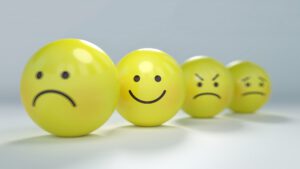
Interview with Professor Dr. Dr. Gerhard Roth
Professor Dr. Dr. Gerhard Roth is Neurobiologist and Director of the Institute for Brain Research at Bremen University, Germany. He is also President (Rektor) of the Hanse-Wissenschaftskolleg Delmenhorst, and President of the German National Academic Foundation. He published more than 200 scientific articles in the areas neurobiology and neurophilosophy. He became well known for his 3 books »Das Gehirn und seine Wirklichkeit«, »Fühlen, Denken, Handeln« und »Aus Sicht des Gehirns« published by Suhrkamp.
BZ: The media are full of negative news. It is understandable that company managers and team leaders get dizzy from time to time. In times like this, stress levels increase particularly when leading people and taking important decisions is involved.
Could you please briefly explain in layman’s terms what happens in our brain in situations of increasing stress and insecurity?
GR: A little stress is normally inspiring to most people as it frees up cognitive and emotional resources. In times of strong and long ongoing stress substances like adrenalin, noradrenalin and cortisol are released excessively. They will paralyse and partly even destroy those parts of the brain that are responsible for creativity, imagination and recollection.
Conversely, they activate especially those parts that make us ‘jump the gun’ or even panic. At the same time the immune system is suppressed making us ill in the long term.
BZ: We frequently meet leaders in organisations who claim they work better under stress. Is that possible? And if so, what are the limitations?
GR: The reaction of brain and body to stress runs in an inverted U-shaped curve. No stress at all will cause mind, body and brain to become languid. Inspiration and some excitement inspire most of us. Strong and ongoing stress, on the other hand, will make more and more issues to appear irresolvable which often leads to physical and psychological disorders. The levels for these processes are depending on the individual and can vary significantly. Some people already struggle to deal with low stress levels while others flourish under pressure and even grow with new challenges. If this reaches a level, however, where an individual is looking for stress (‘sensation seekers’) then it can become pathological.
The way we deal with and respond to stress, whether in a largely positive or negative manner, is defined very early in our development and partly even before birth. It is a key feature of individual personality.
BZ: Leaders in organisations have to take decisions on a daily basis. In your book you introduce pros and cons of gut decisions vs. rational or intuitive decisions. What conclusions can be drawn from that to help taking the right decision particularly in times of crisis?
GR: Quick decisions (mostly taken under time pressure and stress) are almost always wrong. Rational decisions are –seemingly paradoxically- only useful in simple situations. With growing complexity of a situation –as is typical in a crisis- people should move from purely rational to intuitive decision taking. Issues should be reduced to the essential parts and rationally discussed for about 1-2 hours. Then the discussion has to be stopped, any thoughts about the issues suppressed (distraction is important) and after a day or two (not too late!) a joint decision should be taken without further detailed discussion. The creative-intuitive problem solving system which is part of our memory will continue to deal with those ‘touched upon’ issues even when we are not thinking about them directly. The great advantage of that system is its capability to process issues simultaneously and in parallel rather than sequentially. They will then reappear as ideas, notions and tendency for a decision and should be listened to as they are fuelled by the vast amount of cognitive-emotional experience we have available in our memory.
BZ: Considering your work, what would you recommend leaders how they can maintain or regain clear thinking processes even in an emotionally difficult environment and highly complex situations?
GR: The most important point is not to give in to time-pressure as that promotes panic reactions. However, only keeping a clear head is not sufficient either. One should discuss issues and then let them settle for a day. Hence, no crisis-meetings where decisions are forced immediately no matter what. Nothing is more restrictive to mind and intuition than stress and fear. This is also well known to our opponents and they tend to take advantage of it!



